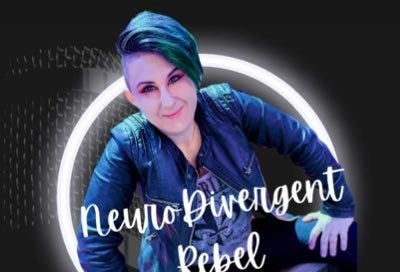The Missing Generations of Autistic People
The missing generation is Autistic/NeuroDivergent adults, typically growing up in the 1990’s (or earlier) who were missed, not discovered to be NeuroDivergent as children.
I am part of what is sometimes known as a “missing generation” of Autistic/NeuroDivergent People.
The missing generations are Autistic/NeuroDivergent adults, typically growing up in the 1990’s (or earlier) who were missed, not discovered to be NeuroDivergent as children (due to a multitude of factors).
These Autistic People grew up during that time when understanding and autism awareness was limited, leaving multiple generations of Autistic People who were undiscovered, or missed.
Fast forward to the year 2006, when the American academy of pediatrics would finally starting to recommend screening all children for autism in pediatric visits at 18 and 24 months. Which is great, however, Autistics born after 2005 (the year I graduated high school) would miss out on the assessments.
I’m going to be 36 next week, and was already a legal adult when they started theses childhood screenings, which are great for future generations, but did NOTHING for Autistics like me and the many others who were missed or ignored (completely) by the American medical system.
Many of us have spent the majority of our lives not knowing we had brains that differed from that of the people around us. We were expected to cope, and people were seldom lenient on us, often pushing us to “try harder” and accusing os of not applying ourselves, even when we were trying our very best.
Some of us went unnoticed because of our abilities to imulate and imatate NeuroTypical People, because we developed coping skills that allowed us to camouflage our NeuroDivergent Traits. We learned to make ourselves small, invisible, and hard to notice, because being left alone is often the safest option in hostile territory.
We stopped reaching out or asking for help, because our needs were often dismissed. When we tried to speak up about things, people shut us down, so we resulted to keeping everything in.
Those of us who couldn’t camouflage our differences may have been given other labels, and our struggles dismissed as laziness, apathy, stubbornness, rebellion, or behavioral issues. Many of us were punished for displaying our NeuroDivergent mannerisms (lack of eye contact, bluntness, stimming/fidgeting, being overwhelmed, melting down, paying attention or communicating differently from our peers).
When we asked for help, we were told to “try harder”. When we told people we were uncomfortable, they told us we were “too sensitive”. Without help we struggled to succeed. When we failed, due to not having enough support, we were scolded for it.
Many of us carry wounds from countless invalidations and dismissals. Some of us have been dismissed by others so frequently we’ve even started to gaslight ourselves, believing all the negative things people have said to and about us over and over, like a thousand tiny pin pricks. We are tired and worn down from the bleeding wounds (each small, but adding up to become a massive scar).
If we are lucky will learn we are NeuroDivergent through another NeuroDivergent Person we know, perhaps a child, friend, or a loved one because “birds of a feather tend to flock together”.
Those who are less fortunate may learn about their NeuroDivergence through other channels - medical emergencies, crisis, burnout, loss of supports (a loved one or a caregiver), or struggling to adapt to new life circumstance/demands.
I was part of the second group, diagnosed because of burnout and accompanying health crisis, due to insuffent supports that would have allowed me to navigate some major life changes.
Without those proper supports I fell apart, unable to do what was expected of me, became ill, and very depressed, as consequence of not understanding myself.
Keep reading with a 7-day free trial
Subscribe to NeuroDivergent Rebel’s Substack to keep reading this post and get 7 days of free access to the full post archives.



